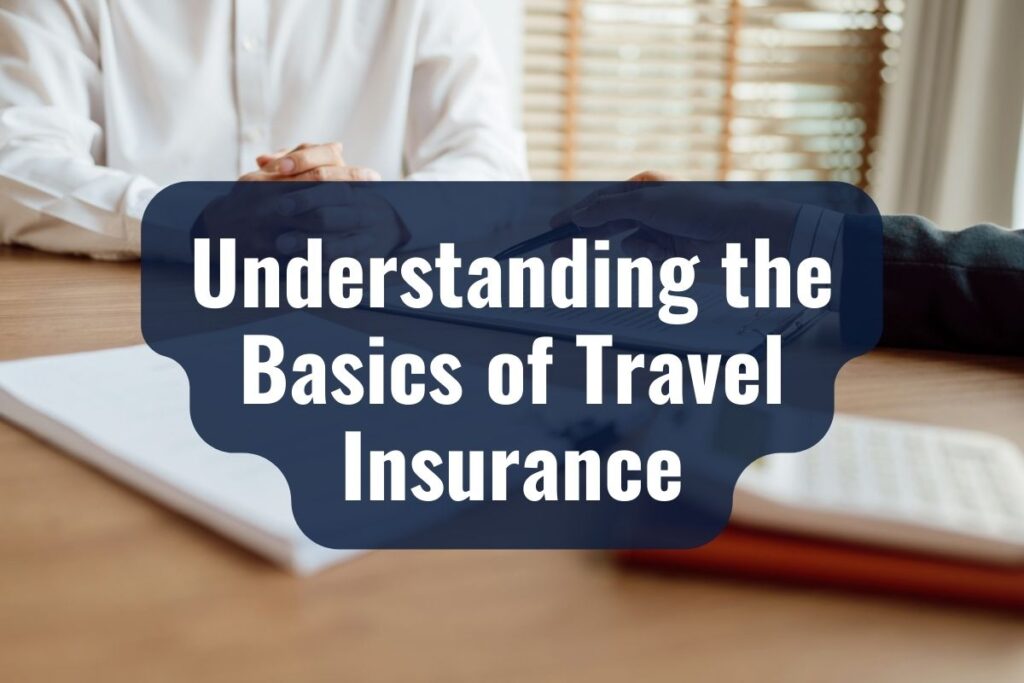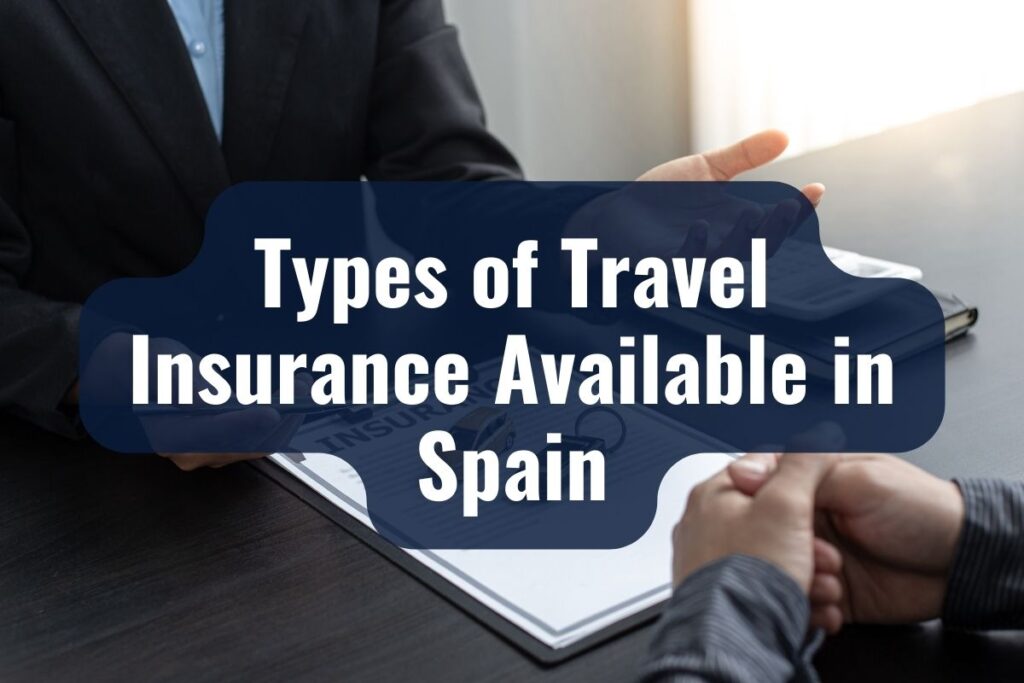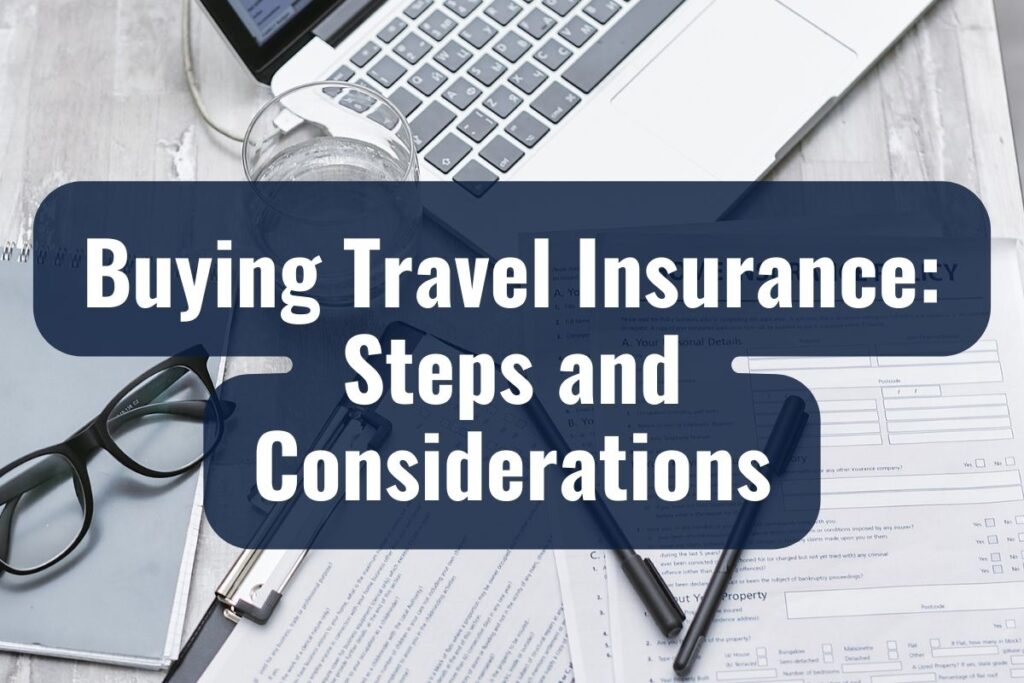As enchanting as this country is, foreigners need to ensure they’re prepared for any unforeseen circumstances that may arise during their stay. One of the foundational aspects of this preparation is securing the right travel insurance.
This guide aims to provide you with clear, informative, and reassuring information on how travel insurance in Spain works and why it’s indispensable for foreigners navigating their journey in this beautiful country.
KEY TAKEAWAYS
- Travel insurance provides essential protection and peace of mind for foreigners in Spain.
- Policies should cover medical emergencies, personal belongings, trip disruptions, and personal liability.
- Understanding and comparing policies ensures tailored coverage that aligns with individual needs.
- The claims process, while structured, requires timely notification and the right documentation.
- Research, recommendations, and periodic reviews enhance the insurance experience in Spain.
The Importance of Travel Insurance
Travel insurance isn’t just a piece of paper or another item on your checklist. It’s peace of mind. It’s the assurance that should you face any medical emergencies, unexpected cancellations, or even misplace your luggage, you’re not alone. While no one anticipates accidents or mishaps, they do happen. And when they do, it’s comforting to know that a safety net exists.
Nuances of Travel Insurance in Spain
Spain has its own set of regulations and expectations when it comes to insurance for foreigners. From its healthcare system to its legal requirements, understanding these nuances will help you make informed choices.
Understanding the Basics of Travel Insurance

Embarking on a journey, whether for a short visit or a prolonged stay, always comes with its share of uncertainties. Travel insurance serves as a safeguard against these unforeseen challenges, ensuring you can focus on enjoying your time in Spain with minimal worries.
What is Travel Insurance?
At its core, travel insurance is a contract between an individual and an insurance provider. This contract ensures that, in exchange for a premium, the insurer will cover specific financial losses that might occur while traveling. From medical emergencies to stolen baggage, it is designed to protect travelers from a variety of unexpected events.
Typical Coverage Areas
Though policies can vary widely based on the provider and the package chosen, most travel insurance plans cover a standard set of areas:
Medical Coverage
Perhaps the most critical component, this ensures that any medical emergencies or treatments required while abroad are taken care of. It can range from outpatient visits to hospitalizations and even medical evacuations in dire situations.
Trip Interruptions and Cancellations
If unforeseen circumstances force you to cut your trip short or cancel it altogether, this part of your insurance can cover the associated costs. Reasons might include personal emergencies, natural disasters, or even last-minute work commitments.
Baggage and Personal Belongings
Lost luggage can be more than just an inconvenience; it can be costly. With this coverage, you’re compensated for lost, stolen, or damaged belongings.
Personal Liability
In the unfortunate event that you cause harm to another person or their property, this aspect of the insurance can cover legal liabilities and associated costs.
These are just the foundational areas. Many policies offer additional features or specialized coverages based on specific needs or travel types.
The Value for Travelers and Residents Alike
While travel insurance is a staple recommendation for tourists, it’s equally beneficial for residents, especially those new to Spain. Even if you’re familiarizing yourself with the localities or settling into a new life, unforeseen events don’t discriminate between a tourist and a resident. Ensuring you have a robust travel insurance policy means that, regardless of your status, you’re shielded from unexpected financial burdens.
Why Foreigners in Spain Need Travel Insurance
Spain offers a plethora of experiences, from its sun-soaked beaches to its bustling city streets and serene countryside. However, as with any destination, there’s a mix of the familiar and the unfamiliar.
For foreigners in Spain, especially those who might not be fluent in the language or customs, having travel insurance becomes more than a precaution—it’s a necessity.
Spain boasts one of the best healthcare systems in the world, offering both public and private facilities. While European Union (EU) citizens with a European Health Insurance Card (EHIC) can access certain healthcare services at reduced costs or even for free, non-EU residents might find themselves facing substantial bills in the absence of proper insurance.
For those from outside the EU, or those seeking treatments outside the scope of EHIC, having travel insurance with comprehensive medical coverage ensures you won’t be left grappling with unforeseen medical expenses.
Common Mishaps and Unforeseen Challenges
Whether it’s misplacing your passport in Madrid, facing flight delays in Barcelona, or falling ill while exploring the streets of Seville, challenges can crop up when least expected. Here’s why travel insurance becomes invaluable:
Language Barrier
Medical emergencies are stressful. When coupled with a language barrier, they can become even more daunting. Travel insurance often comes with 24/7 assistance services that can aid in translation or direct you to English-speaking medical professionals.
Loss of Personal Items
Spain, like many popular destinations, has areas where pickpocketing or theft can be an issue. Insurance ensures you’re compensated for such losses, letting you continue your journey with minimal disruption.
Accommodation and Travel Issues
Should you face unexpected cancellations or delays in your travel plans, the right insurance policy can cover the associated costs, from hotel bookings to alternative travel arrangements.
Legal and Liability Concerns
While nobody anticipates causing harm or damage during their stay, accidents happen. In such cases, being unfamiliar with the Spanish legal system can be intimidating. A travel insurance policy with personal liability coverage can provide the necessary financial protection and legal assistance.
Peace of Mind: Priceless
Beyond the tangible benefits and financial safeguards, travel insurance offers something intangible yet invaluable: peace of mind. Knowing you’re protected allows you to immerse yourself in Spanish culture, explore its vast landscapes, and engage with its people, all while carrying the assurance that, come what may, you’re well-covered.
Types of Travel Insurance Available in Spain

As diverse as the reasons people visit or reside in Spain are, so too are the types of travel insurance available to meet their unique needs. Whether you’re a student studying abroad, a retiree soaking up the Mediterranean sun, or a tourist exploring Spain’s myriad attractions, there’s likely a policy tailored for you.
Short-Term vs. Long-Term Insurance
Short-Term Insurance: Ideal for tourists, business travelers, or those on brief sabbaticals. These policies typically cover trips ranging from a few days to a couple of months. They provide basic coverage such as medical emergencies, trip cancellations, and lost baggage.
Long-Term Insurance: Designed for individuals who plan to stay in Spain for extended periods, be it for work, studies, or prolonged vacations. These policies often come with comprehensive coverage, including routine medical check-ups, dental care, and even maternity benefits.
Specialized Insurance Packages
Student Insurance: Tailored for foreign students pursuing their education in Spain. These policies often cover medical treatments, personal accidents, and sometimes even study interruptions due to medical reasons.
Expatriate Insurance: Perfect for professionals or families relocating to Spain. This comprehensive insurance caters to the diverse needs of expats, from health and dental care to repatriation services.
Retiree Insurance: Spain is a popular destination for retirees from all over the world. Retiree-focused policies ensure that older individuals receive the care and coverage they need, often emphasizing medical treatments, hospital stays, and even chronic condition management.
Additional Travel Insurance Options
Adventure and Sports Insurance: Spain offers a range of adventure sports, from skiing in the Pyrenees to surfing in Tarifa. For those keen on such activities, specialized insurance ensures any accidents or injuries during these activities are covered.
Group Travel Insurance: If you’re traveling with family or as part of a group, these policies offer collective coverage, ensuring every member is protected. They often come at discounted rates compared to individual policies.
Customizable Add-Ons
Many insurance providers offer the flexibility to customize policies with specific add-ons. Whether it’s additional coverage for high-value items, enhanced medical coverage, or services like car rental protection, you can shape your policy to fit your exact needs.
Key Features to Look for in a Travel Insurance Policy
Securing travel insurance is a prudent decision, but not all policies are created equal. When sifting through the myriad options available for travel insurance in Spain, it’s crucial to ensure that your chosen policy aligns with your needs and offers comprehensive protection. Here, we’ll guide you through the essential features to consider when selecting a travel insurance policy.
| Feature | Description |
| Medical Coverage | Comprehensive care including treatments, medications, and medical evacuations |
| Lost or Stolen Luggage | Compensation for lost, stolen, or damaged personal belonging |
| Trip Cancellations and Delays | Coverage for unexpected travel disruptions and associated cost |
| Personal Liability | Protection against legal fees and compensations in case of accidental harm or property damage to others |
| Additional Services | 24/7 assistance, translation services, and repatriation, enhancing support during unforeseen situations |
Medical Coverage
Arguably the most vital component of any travel insurance, medical coverage should be comprehensive and fit for your health needs. Consider the following:
Treatment Costs: Ensure that the policy covers both outpatient and inpatient treatments, surgeries, and even prescription medications.
Medical Evacuation: In remote areas or in cases of severe medical conditions, being transported to a suitable medical facility or back to your home country is essential. Your policy should cater to this.
Dental Emergencies: While routine dental care might not be a priority, emergencies can arise. It’s beneficial if your policy covers emergency dental treatments.
Lost or Stolen Luggage
The inconvenience of losing personal belongings can cast a shadow over your journey. Ensure your policy:
Compensates Adequately: The policy should cover the actual cost or a significant portion of lost, stolen, or damaged items.
Has a Reasonable Claim Process: Check for any excessive documentation or cumbersome procedures that might deter you from making a claim.
Trip Cancellations and Delays
Flights can get canceled, or personal emergencies might cut short your adventure. In such cases:
Refund Policies: Your insurance should offer refunds for prepaid expenses if you need to cancel or cut short your trip due to unforeseen reasons.
Coverage for Delays: If you’re stuck somewhere due to delays, the policy should cover additional expenses like accommodation.
Personal Liability
Accidents happen, and sometimes they may involve others. In these scenarios:
Legal Coverage: Should you accidentally harm someone or damage property, your insurance should cover the legal fees and potential compensation.
Clear Terms: It’s essential to understand what scenarios the liability coverage encompasses and any exclusions.
Additional Services
Beyond the primary coverage areas, consider the supplementary services an insurance policy offers:
24/7 Assistance: Especially crucial in emergencies or when facing language barriers. This service can guide you to the nearest medical facility or aid you with urgent queries.
Translation Services: For non-Spanish speakers, having access to translation services, especially during medical emergencies, can be invaluable.
Repatriation: In the unfortunate event of severe health issues or even death, the policy should cover the costs of returning the insured to their home country.
Buying Travel Insurance: Steps and Considerations

Acquiring the right travel insurance is a pivotal part of ensuring a hassle-free experience in Spain. While the importance of insurance is clear, the process of purchasing it might feel a tad overwhelming. To assist you, we’ve outlined a straightforward approach, complemented with vital considerations, to guide you through this significant decision.
Research Reputable Insurance Companies
Before diving into the specifics of policies, start with identifying trustworthy insurance providers:
Check Reviews: Online platforms and forums can offer insights into others’ experiences with particular companies.
Seek Recommendations: Fellow travelers, expats, or even local acquaintances might have suggestions based on their own experiences.
Compare Policies
Once you have a list of potential providers, delve into the details of their offerings:
Coverage Scope: Ensure the policy covers the key areas discussed earlier, like medical coverage, personal liability, and trip interruptions.
Cost vs. Benefit: While pricing is essential, the cheapest policy might not always be the best. Balance cost with the comprehensiveness of the coverage.
Exclusions: Every policy will have them. It’s vital to understand what isn’t covered as much as what is.
Understand Policy Exclusions and Limitations
Policies often come with stipulations that can affect your coverage:
Pre-existing Conditions: Some policies might not cover health issues you had before purchasing the insurance.
High-risk Activities: If you’re planning on partaking in adventure sports or activities considered high-risk, ensure they’re covered.
Claim Limits: Understand the maximum amounts you can claim for various sections of your policy, such as medical expenses or lost baggage.
Consider the Duration of Your Stay
Short-Term vs. Long-Term: As discussed earlier, the length of your stay might determine the type of policy best suited for you. Make sure the duration of your insurance matches your intended stay.
Application Process
With a chosen policy in mind, it’s time to apply:
Documentation: Typically, insurers will require basic personal information, travel details, and any other relevant documentation. Ensure you provide accurate details to avoid complications later.
Premium Payment: Once your application is approved, you’ll need to pay the premium to activate your policy. Methods can range from online payments to bank transfers.
Review and Confirm
Before finalizing, take a moment to review:
Understand Your Policy: Go through the policy document carefully. Ensure you’re familiar with the terms, coverages, and any potential exclusions.
Seek Clarification: If any part of the policy remains unclear, don’t hesitate to reach out to the insurance provider for answers.
Claims: How They Work and What to Expect

Even with the most meticulous planning and caution, unforeseen events can occur. Should you find yourself in a situation where you need to leverage your travel insurance, understanding the claims process is crucial.
Initiating the Claim
If you face an incident that’s covered under your policy, the first step is to notify your insurance provider:
Timely Notification: Most insurance companies have a window within which you must inform them of an incident. Ensure you’re aware of this timeframe and adhere to it.
Initial Details: At this stage, provide a brief overview of the incident. This could be over the phone, through an online portal, or even via a mobile app, depending on the insurer.
Documentation is Key
Supporting your claim with the right documentation is pivotal:
Medical Claims: These might require medical reports, prescriptions, bills, and any related paperwork that showcases the nature and cost of the treatment.
Theft or Loss: If you’ve lost personal belongings or they’ve been stolen, you might need to provide a police report, purchase receipts for the items, or photographs showcasing the items before the loss.
Trip Delays or Cancellations: Retain any communication or documentation from airlines or travel agencies that confirms the delay or cancellation.
Completing the Claim Form
After the initial notification, you’ll likely need to complete a formal claim form:
Accurate Details: Ensure all information provided aligns with the actual events and the supporting documentation.
Include Everything: It’s better to provide more details and documentation than less. The more comprehensive your claim form, the smoother the processing can be.
Submission and Review
Once your claim form and documents are ready:
Submit Promptly: To expedite the process, send in your claim form and documents without delay.
Review Process: The insurance company will assess your claim, which might involve verifying details, cross-referencing documents, or even reaching out to you for additional information.
Decision and Payout
Post-review, the insurance provider will make a decision:
Approval: If your claim is approved, the insurance company will inform you of the payout amount and the method of payment. This could be a direct bank transfer, a cheque, or other means, based on the company’s practices.
Discrepancies or Denials: Should there be any issues with the claim or if it’s denied, the insurer will provide reasons. You typically have the right to appeal or seek clarification on their decision.
Timeline for Claims Processing
The duration for claims processing can vary:
Typical Duration: Many companies aim to resolve claims within a few weeks, but more complex cases might take longer.
Stay Informed: Keep track of your claim’s status. Most insurance companies offer online tracking or will provide updates via email or phone.
Tips for Foreigners Regarding Travel Insurance in Spain

For foreigners venturing into Spain, travel insurance stands as a beacon of reassurance amidst the tapestry of new experiences. As you prepare to immerse yourself in Spain’s rich culture and stunning vistas, consider these tailored tips to ensure your travel insurance experience is as smooth as your journey.
Start Early: The Benefits of Planning Ahead
While it’s possible to secure travel insurance post-arrival, beginning your search well in advance allows you ample time to:
- Compare various policies.
- Seek clarifications or ask questions.
- Understand policy terms without rushing.
Seek Recommendations from Fellow Foreigners or Expats
There’s wisdom in shared experiences. Fellow travelers or expats can offer:
- Insights into reliable insurance providers
- Personal anecdotes about their claim experiences
- Tips specific to the region of Spain you’re visiting
Keeping Copies of All Related Documents
Whether digital or physical:
- Store a copy of your insurance policy, ensuring it’s easily accessible.
- Keep copies of any documents you might need for claims, such as receipts, medical prescriptions, or tickets.
Stay Updated on Spain-specific Health Alerts
Being aware can shape your activities and plans:
- Monitor health advisories, especially if you’re traveling during flu seasons or health outbreaks.
- This knowledge might also affect any additional coverage you choose.
Customize Your Policy to Your Activities
Spain offers a plethora of activities, from serene wine tours to adrenaline-pumping bull runs:
- If you intend to partake in specific activities deemed “high-risk,” ensure they’re covered in your policy.
- Some policies allow for activity-specific add-ons.
Understand the Local Healthcare System
Even with insurance in hand:
- Familiarize yourself with the local hospitals or clinics in the area you’re staying.
- Know the difference between private and public healthcare facilities and which one your insurance covers.
Maintain Open Communication with Your Provider
Should any aspect of your trip change, or if you have doubts:
- Don’t hesitate to reach out to your insurance provider.
- Keeping them updated, especially in the case of extended stays, ensures continuous coverage.
Stay Informed about Local Emergencies
While insurance offers financial protection:
- Staying updated on local news or regional advisories can offer physical safety.
- Be aware of local emergency numbers or helplines.
Regularly Review Your Policy
Especially for long-term stays:
- Periodically revisit your policy to ensure it aligns with your current needs.
- If your circumstances change, such as new health conditions or travel plans, consider updating your coverage.


